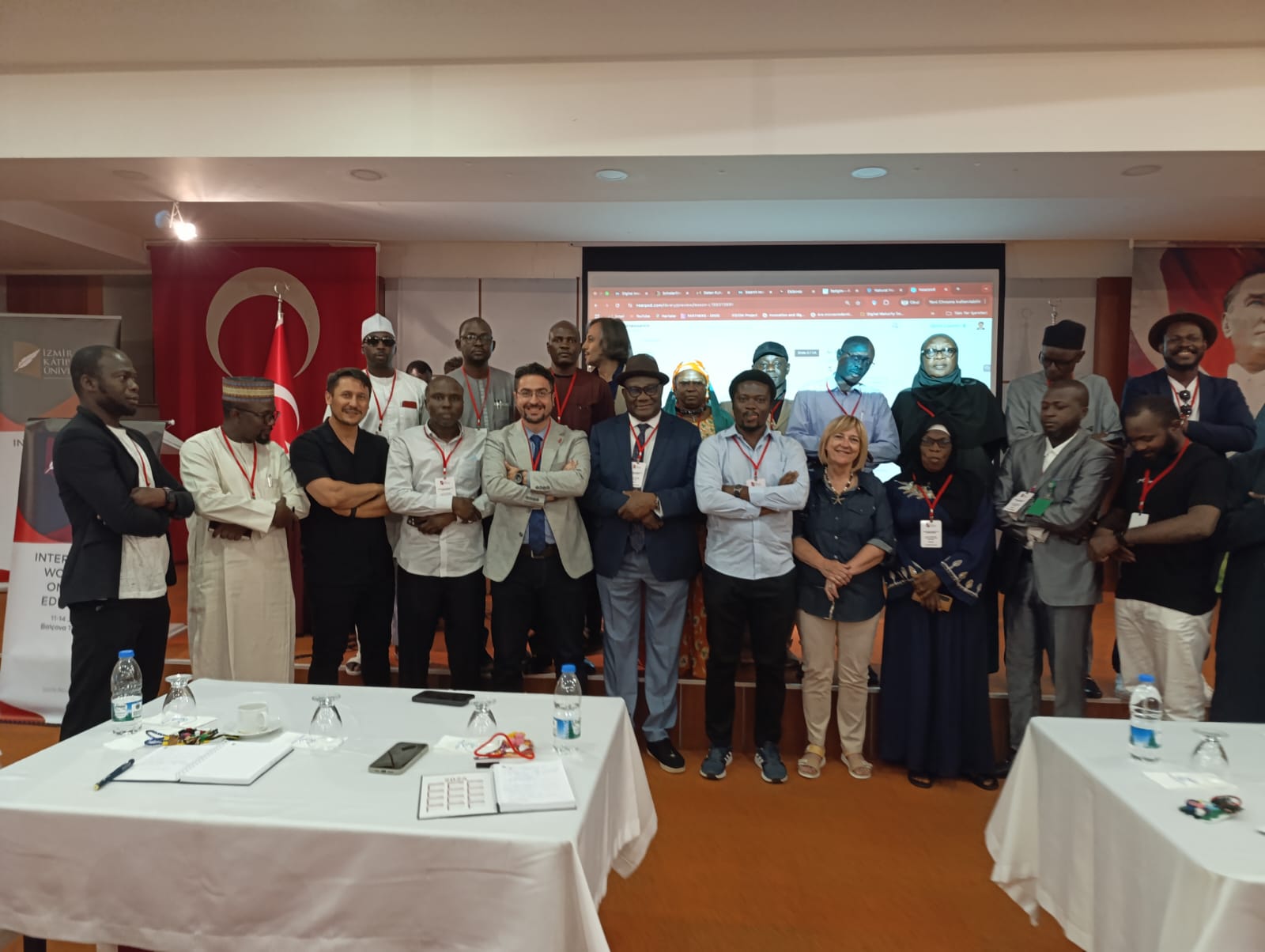Young people in Türkiye are heavy AI users but want real seats at the table. Our YouthGovAI country paper pairs a national survey with focus groups and a co-creation sprint to map what youth know, how they use AI, and what would actually help them shape policy.
We have shared the project survey results in our African Turkish AI workshop titled ‘AI for Higher Education: Research, Management, and Teaching Innovations’ in Izmir/Türkiye.
Dr. Ahmet Göçen has presented the Turkish results to international participants.
Why this matters
Across Europe, YouthGovAI keeps hearing the same refrain: awareness is high—agency is not. Young people are surrounded by AI at home and in school, yet they’re not always sure how it works, when to trust it, or how to influence the rules that govern it. Türkiye’s youth are telling the same story—and they’ve sketched a practical roadmap for fixing it.
How we listened (methods in brief)
- Online survey (n=127) on familiarity, frequency of use, trust, and critical skills (e.g., spotting AI systems, detecting AI-generated misinformation).
- Participatory sessions: national focus groups and a co-creation sprint bringing together high-schoolers, undergraduates, and youth leaders.
- Mixed-methods synthesis to pair what young people do with AI (survey) and what they want changed (sessions).
Pull quote: “We use AI every day. We also want a say in how it’s taught, used, and governed.”
Key numbers at a glance (Türkiye)
- AI is routine: 63.8% use AI multiple times per week or more in daily life.
- In schoolwork: 21.3% use AI daily; a further 33.9% use it two–four times/week.
- Spotting AI: Fewer than 1 in 4 feel fully/very confident identifying AI technologies “in the wild.”
- Trusting LLMs: 69.3% report moderate or higher trust, but only 5.5% feel very confident in accuracy.
- Detecting fakes: 46.5% feel moderately confident identifying AI-generated disinformation; only about 11% feel very confident.
What it means: Türkiye’s youth are immersed in AI but still building the conceptual and civic tools needed to judge, challenge, and govern these systems.
The policy moment in Türkiye
Türkiye is actively updating its AI governance and education toolkits. Three developments make youth participation especially timely:
- National Artificial Intelligence Strategy (2021–2025) with a 2024–2025 Action Plan setting concrete tasks aligned with international norms.
- Artificial Intelligence Bill No. 2/2234 (June 24, 2024) proposing a risk-based approach and strong penalties (up to 35 million TRY or 7% of annual turnover) for banned uses.
- MoNE’s AI in Education Policy & Action Plan (2025–2029) to mainstream AI safely and ethically across the school system.
Bottom line: The policy window is open—youth voice should be inside it, not outside it.
What young people in Türkiye asked for
From focus groups and the co-creation sprint, four themes were loud and clear:
- Real seats for youth: Create Youth AI Councils at municipal and national levels. These should be decision-shaping bodies, not passive “listen-only” forums.
- Curriculum-level AI literacy: Blend coding/data basics with bias, safety, deepfake detection, and civic uses—hands-on, project-based, and kept up-to-date.
- Mentors & partnerships: Educators, NGOs, universities, and tech firms should co-design courses and open pathways into governance and internships.
- Access matters: Costs of devices, data, and training block participation. Prioritize affordability and inclusion so rural and low-income youth aren’t left out.
A do-this-quarter blueprint
- Stand up Youth AI Councils in municipalities and relevant ministries; give under-25s voting rights on agendas and recommendations.
- Pilot a national “AI & Democracy” module (ICT/civics): build a simple chatbot → audit a dataset → debate its ethics → present a policy memo.
- Teacher upskilling + MoNE alignment: Tie school-level pilots to the 2025–2029 plan to ensure successful models scale.
- Equity levers: device/data subsidies; open maker-spaces in youth centers; provide travel stipends so rural youth can join policy events.
- Transparent consultations: For every AI hearing, publish who spoke (and who didn’t). Set targets for youth representation and track progress.
How this fits the wider YouthGovAI picture
Country snapshots across Europe show the same pattern—high awareness, uneven understanding, cautious trust—from Germany and Italy to Greece and Poland. Türkiye’s contribution strengthens the comparative case: if we want safe, fair, and future-ready AI, we must pair literacy with voice.
The takeaway
Türkiye’s young people are already power users of AI. Give them knowledge, paths in, and real power, and they’ll help make AI not only innovative and competitive—but fair, inclusive, and democratic.
